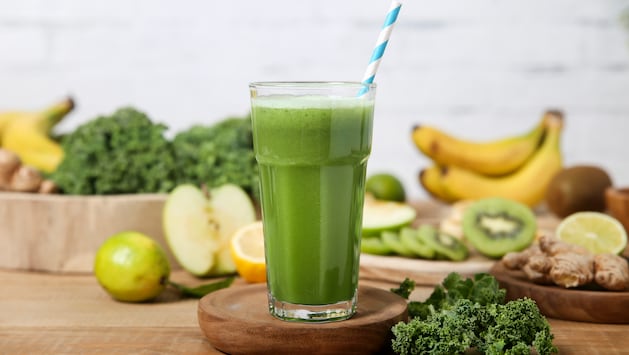There are always drinks that are supposed to be really healthy. But are they really that good for the body? Here you can read which drinks are unhealthier than you think.
Water is the best drink to quench thirst. But water isn’t particularly exciting.
That’s why many people turn to alternatives that are considered healthy and are intended to supply the body with fluids and taste more exciting than water. However, such special drinks are not always as good as their reputation.
You should only drink coconut water if you like the taste – not because you hope it will automatically make you a healthier person.
In general, coconut water has a few good properties: it is completely natural, contains little sugar and is a good source of potassium, which regulates blood pressure.
But the popular claim that coconut water quenches thirst better than water is, frankly, pure nonsense. “We actually only need water to provide the body with enough fluids,” says nutritionist Dr. Joanna McMillan.
In today’s obsession with low-fat, low-carb products, protein is considered the magic bullet among macronutrients, which is why you can buy protein bread, cereal, chips, chocolate and yes, protein water.
The protein water usually contains whey protein – which is also used in many protein shakes because it can be easily digested by the human body.
One serving of protein water provides around 20-30 grams of protein. Sounds good at first – but you probably don’t need that much.
Because you can easily get all the protein your body needs from whole foods and drinks, even if you have very high protein needs.
According to McMillan, so-called vitamin water is also not recommended: although it contains vitamins, it usually also contains a lot of sugar and/or caffeine.
“You don’t need vitamins from water,” she explains, adding that you can better control the dose and type of a particular vitamin by taking a specific supplement or (best of all) getting enough vitamins from food.
The expert therefore recommends eating enough fruit, vegetables and other whole foods.
“Beware of green juices,” warns McMillan. Bottled green juice is often just fruit juice in disguise – which can be sweeter than any soft drink.
“Go for a smoothie rather than a juice so you get all the pulp, including the fiber it contains,” she advises.
“However, always read the ingredients list. Vegetables should be at the top, followed by fruits – but sugar should not be included.”
Special sports drinks are vital – if you are an endurance athlete participating in a marathon, Ironman or other sporting event, or if you engage in intense physical activity in hot weather.
Otherwise, isotonic drinks are not recommended – you don’t necessarily need the electrolytes they contain, and the sugar contained in many varieties is likely to be stored as fat instead of being burned directly as energy.
“These drinks are unsuitable as an energy boost in the afternoon,” says McMillan.
In recent years, kombucha has developed from an insider tip to a supermarket product
Both are touted as probiotics, foods that contain live bacteria that (theoretically) colonize the gastrointestinal tract and are supposed to improve health.
But according to nutritionist Dr. Joanna McMillan, most bottled kombucha contains fewer live bacteria than tap water – negating the probiotic benefits. There is also no scientific evidence as to whether taking probiotics actually has much effect in otherwise healthy people.
Even if the health benefits are not as great as they are often portrayed, that does not mean that there are none at all.
“If you have either drink instead of a soft drink, fruit juice or a beer, that’s brilliant,” McMillan told coach.nine.au. “But always look at the nutritional table for finished products because some of them contain quite a lot of sugar.”
The original for this article “Five drinks are considered healthy, but they are not” comes from FitForFun.









